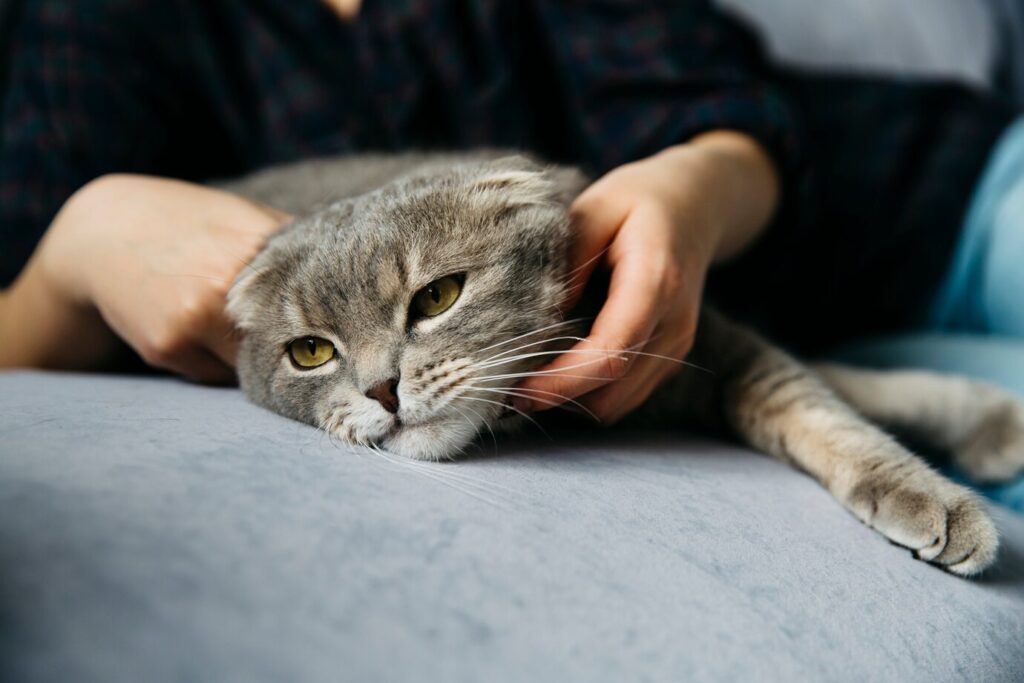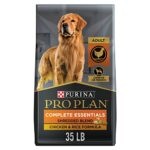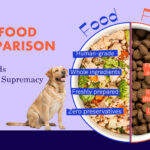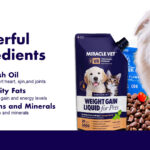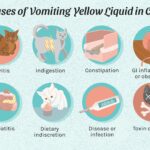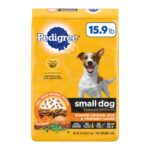Feed a cat with diarrhea a bland diet such as boiled chicken and rice or a prescription gastrointestinal food. Consult your vet for specific dietary recommendations.
Dealing with a cat suffering from diarrhea can be challenging for pet owners. A cat’s digestive health is delicate, and when upset, it requires immediate attention. A bland diet, often comprising easily digestible foods, is crucial in these situations. Temporary dietary changes help soothe your cat’s gastrointestinal tract and provide relief from diarrhea.
It’s important to ensure that the food is plain, without any spices, oils, or additives that could further irritate the stomach. Hydration is also key, as diarrhea can lead to dehydration. Always provide plenty of fresh water and monitor your cat’s intake. For persistent cases or severe diarrhea, seeking veterinary advice is essential to address any underlying health issues and prevent complications. A professional may also suggest probiotics or other supplements to support your cat’s digestive health.
Causes Of Cat Diarrhea
Cat diarrhea can be distressing for both the pet and the owner. Understanding the common causes is essential for proper care. It helps determine what to feed a cat with diarrhea. Below are key reasons behind this unpleasant condition.
Dietary Indiscretion
Cats are curious creatures. They sometimes eat things they shouldn’t. This can upset their stomachs. Common culprits include:
- Garbage or spoiled food
- Non-food items like string or toys
- Too much food or new treats
Food Allergies
Cats can develop allergies to certain ingredients in their diet. Symptoms often include diarrhea. Typical allergens are:
| Proteins | Grains | Dairy |
|---|---|---|
| Beef | Wheat | Milk products |
| Chicken | Corn | Cheese |
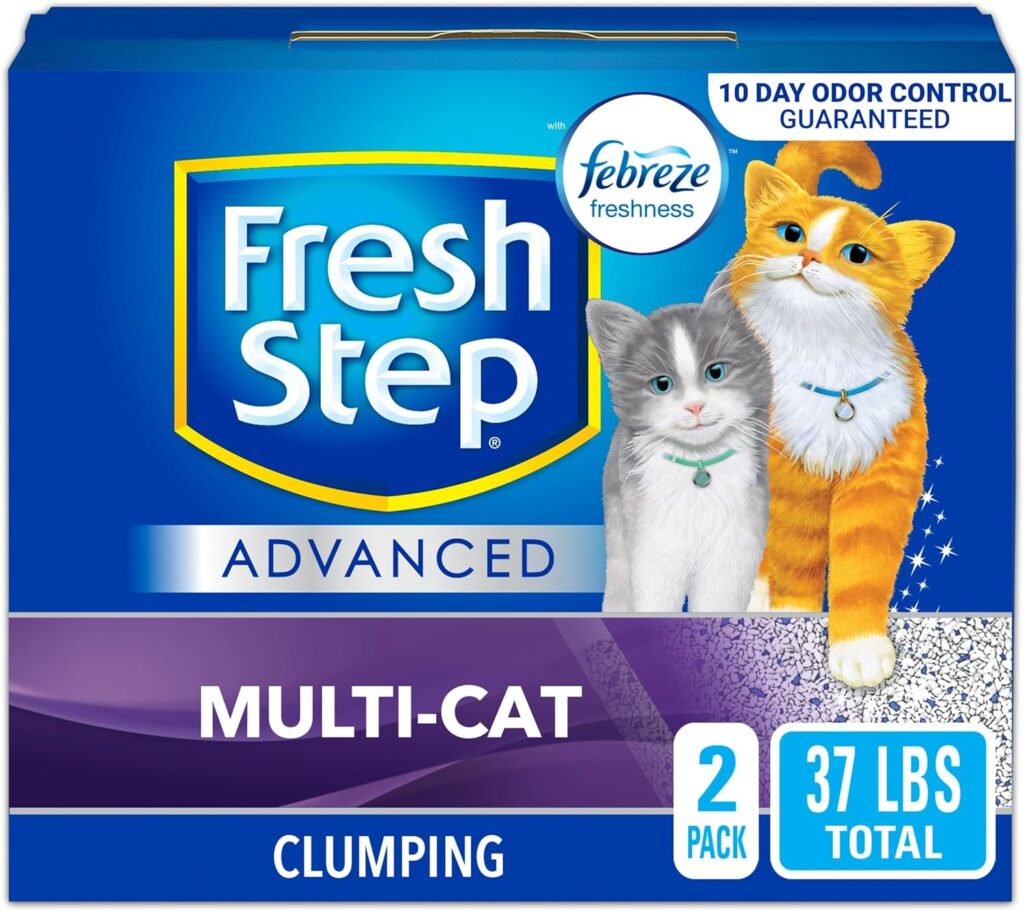
Bacterial Infections
Pathogens like E. coli or Salmonella can cause infections. These may lead to diarrhea. Cats can get infected by:
- Contaminated food or water
- Coming into contact with infected animals
- Exposure to dirty litter boxes
Symptoms Of Cat Diarrhea
Cat diarrhea can be distressing for both the pet and the owner. It’s crucial to recognize the symptoms promptly. Early detection helps decide what to feed a cat with diarrhea. Let’s delve into the common signs:
Loose Stool
The most evident sign of diarrhea is loose, watery stool. This change in consistency indicates digestive upset. Monitor your cat’s litter box for any changes.
Increased Frequency Of Bowel Movements
An increase in the number of times a cat uses the litter box can signal trouble. Frequent bowel movements are a clear sign that your cat may need a special diet.
Blood Or Mucus In Stool
Spotting blood or mucus in your cat’s stool is a warning sign. This symptom suggests irritation or inflammation in the gastrointestinal tract. Consult a vet if you notice these changes.
| Symptom | Description | Action |
|---|---|---|
| Loose Stool | Watery and lacks form | Observe and adjust diet |
| Increased Frequency | More trips to the litter box | Monitor closely |
| Blood or Mucus | Red streaks or slimy coating | Seek veterinary care |
- Stay alert to your cat’s litter habits.
- Check daily for changes in stool consistency.
- Note the frequency of your cat’s bowel movements.
- Look for blood or mucus, which are red flags.
Understanding these symptoms is the first step in caring for a cat with diarrhea. The next step involves choosing the right diet. Stay informed on what to feed a cat with diarrhea to support recovery.
Importance Of Proper Diet
The proper diet for a cat with diarrhea is vital for its recovery. A cat’s digestive system is sensitive. Diarrhea can cause serious health issues if not addressed. A nutritious, balanced diet helps manage symptoms and supports healing.
Maintaining Hydration
Keeping your cat hydrated is critical during diarrhea. Fluid loss can lead to dehydration quickly. Provide clean, fresh water at all times. Consider giving small amounts of electrolyte solutions if recommended by your vet.
Balancing Nutrient Intake
When deciding what to feed a cat with diarrhea, focus on balance. Your cat needs easily digestible proteins, carbohydrates, and fats. A temporary shift to bland, boiled chicken or white fish may help.
- Boiled chicken (no skin or bones)
- White fish like cod
- Pumpkin for fiber (moderate amount)
- Cooked white rice
Supporting Digestive Health
Probiotics and prebiotics can promote healthy gut bacteria. They aid digestion and stool formation. Your vet may suggest specific probiotic supplements. Some cat foods are designed for digestive support.
| Food Type | Benefits |
|---|---|
| Probiotic Supplements | Restore gut flora, improve digestion |
| Prebiotic Foods | Support growth of healthy bacteria |
| Specialized Cat Food | Formulated for sensitive stomachs |

Credit: scrumbles.co.uk
Consulting A Veterinarian
When your feline friend suffers from diarrhea, a vet visit is crucial. Diarrhea in cats can stem from simple dietary indiscretions or indicate more serious health issues. Consulting a veterinarian ensures your cat receives the right care.
Diagnostic Tests
Identifying the cause of diarrhea is the first step to treatment. Your vet may recommend several diagnostic tests:
- Fecal exam: Checks for parasites or bacterial infections.
- Blood tests: Reveals systemic issues like kidney or liver problems.
- X-rays or ultrasound: Visualizes internal abnormalities.
Professional Advice On Diet
What to feed a cat with diarrhea is a common concern. A vet can suggest specific diets that are gentle on your cat’s digestive system:
- Easy-to-digest meals, like boiled chicken or rice.
- Specialized commercial food designed for sensitive stomachs.
- Plenty of water to prevent dehydration.
Medication And Treatment
Based on the diagnosis, your vet will prescribe appropriate medication:
| Condition | Treatment |
|---|---|
| Parasites | Antiparasitic drugs |
| Infection | Antibiotics |
| Inflammation | Anti-inflammatory medication |
Remember, always follow the vet’s instructions for dosage and duration of treatment.
Foods To Avoid
Cats with diarrhea require a specialized diet; rich dairy products and fatty foods should be avoided. Opt for easily digestible meals, steering clear of raw ingredients that can exacerbate stomach upset.
When your cat suffers from diarrhea, choosing the right diet is crucial. Certain foods can worsen their condition. Here’s a guide on what to avoid.
Dairy Products
Cats often lack the enzymes needed to digest dairy properly. This can lead to gastrointestinal upset. Avoid milk, cheese, and yogurt to help your cat heal faster.
Fatty Foods
High-fat foods are hard for a sick cat to digest. They can prolong diarrhea or make it worse. Keep foods like butter, fatty meat, and cream off their diet.
Spicy Foods
Spices can irritate your cat’s stomach and intestines. This irritation can increase diarrhea symptoms. Avoid any food with garlic, onions, or hot spices. Remember, knowing what to feed a cat with diarrhea is as important as knowing what to avoid. Stick to bland, easy-to-digest meals. This approach helps your cat recover without extra stomach upset.
Transitioning To A New Diet
Cats with diarrhea need special care, especially when it comes to their diet. A new diet can help manage their symptoms and improve their digestive health. Transitioning to a new diet should be done thoughtfully to ensure your cat’s comfort and health.
Gradual Introduction Of New Food
Introducing new food to your cat should be a slow process. Start by mixing a small amount of the new food with their current food. Over the next week, gradually increase the new food while decreasing the old food.
Monitoring Bowel Movements
Keep a close eye on your cat’s bowel movements during the diet transition. Look for signs of improvement or any adverse reactions. Record the consistency and frequency of your cat’s stools to share with your vet.
Adjusting Portion Sizes
Diarrhea can be sensitive to portion sizes. Smaller, more frequent meals can help manage diarrhea. Adjust the meal sizes based on your cat’s reaction to the new diet.
| Day | Old Food (%) | New Food (%) | Notes |
|---|---|---|---|
| Day 1-2 | 75 | 25 | Introduce new food |
| Day 3-4 | 50 | 50 | Equal parts old and new |
| Day 5-6 | 25 | 75 | Mostly new food |
| Day 7 | 0 | 100 | Fully transitioned |
- Hydration is key—ensure fresh water is always available.
- Avoid milk as it can worsen diarrhea in many cats.
- Choose easily digestible foods like boiled chicken or special veterinary diets.
Remember, consult your veterinarian before making any diet changes. They can recommend what to feed a cat with diarrhea based on your cat’s specific needs.
Recommended Diet For Cats With Diarrhea
Dealing with a cat with diarrhea requires a careful approach to their diet. The right nutrition can support your feline’s recovery and help restore their digestive health. Let’s explore the recommended diet for cats with diarrhea to ensure your furry friend gets back to feeling their best.
High-quality, Digestible Protein
Protein is vital for your cat’s health, but it needs to be easily digestible during diarrhea episodes. Look for sources like cooked chicken, turkey, or easily digestible fish. These options provide the necessary nutrients without overburdening the digestive system.
Limited Ingredient Diet
A limited ingredient diet can minimize the risk of food sensitivities that exacerbate diarrhea. Opt for commercial cat foods or homemade meals with minimal components. Prioritize single protein sources and avoid complex carbohydrates and dairy.
Probiotics And Digestive Enzymes
Integrating probiotics and digestive enzymes into your cat’s diet can aid in restoring gut flora balance. These supplements support a healthy digestive tract, aiding in the resolution of diarrhea. Always consult a vet before adding new supplements to your cat’s diet.
Remember, what to feed a cat with diarrhea is as important as what to avoid. Steer clear of rich, fatty foods, and dairy products during this time. Focus on gentle, nourishing options that will help your cat heal.
Home Remedies And Supplements
Dealing with a cat’s diarrhea can be stressful for both you and your pet. Finding the right home remedies and supplements can help ease their discomfort. Here are some gentle options that can soothe your cat’s digestive system.
Pumpkin Puree
Pumpkin puree is a great choice for what to feed a cat with diarrhea. It’s rich in fiber, which helps to solidify your cat’s stools. Make sure to use plain, unsweetened pumpkin puree.
- Helps absorb excess water in the gut.
- Provides essential nutrients and fiber.
Boiled Chicken And Rice
This simple meal is easy on your cat’s stomach. It’s also very appealing to most cats, which is important when they might not feel like eating.
- Boil chicken thoroughly until it’s soft.
- Cook rice until it’s very soft, then mix with chicken.
Ensure no spices or oils are added to this mixture.
Fluid Therapy
Keeping your cat hydrated is crucial. Diarrhea can lead to dehydration quickly.
Provide clean water at all times. Consider using a pet water fountain to encourage them to drink more.
| Method | Description |
|---|---|
| Pedialyte | Unflavored Pedialyte can help replenish electrolytes. |
| Water Bowl | Refresh water frequently to ensure it’s appealing. |
Feeding Schedule And Portions
When your cat suffers from diarrhea, its feeding routine requires special attention. The right ‘Feeding Schedule and Portions’ can help manage symptoms and promote recovery. Below, explore how to adjust meal times and sizes for your feline friend during this sensitive period.
Frequent Small Meals
Cats with diarrhea need frequent, small meals throughout the day. This approach eases digestion and helps the intestinal tract recover. Aim for four to six small meals, spaced evenly from morning to night.
- Start early in the morning with the first small meal.
- Continue with mid-morning, midday, and afternoon feedings.
- Finish with an early evening meal and a final one before bedtime.
Measuring Portion Sizes
Understanding what to feed a cat with diarrhea includes knowing how much to offer. Portion control is vital during this time. Use a measuring cup or scale to serve consistent amounts.
Repeat for other meals
| Meal | Portion Size |
|---|---|
| Meal 1 | 1/6 of daily food intake |
| Meal 2 | 1/6 of daily food intake |
| Meal 3 | 1/6 of daily food intake |
Consult your vet for the exact portion size, as it may vary based on your cat’s weight and dietary needs.
Monitoring Water Intake
Keep a close eye on your cat’s water consumption. Diarrhea can lead to dehydration quickly. Always provide clean, fresh water. Refill the water bowl with each meal and check it periodically.
- Place water bowls in multiple accessible locations.
- Refresh water at least twice a day.
- Consider a water fountain to encourage more drinking.
Monitor your cat for signs of dehydration and consult your vet if concerned.
Environmental Factors
When your cat has diarrhea, the right food is crucial. But don’t overlook their surroundings. Environmental factors play a big role in your cat’s health. A stress-free space, clean water, and a hygienic litter box can help manage and prevent diarrhea.
Reducing Stress
Cats need a calm environment. Stress triggers stomach issues. Ensure your home is a quiet haven. Soft music and a consistent routine help. Provide a safe spot for your cat. It could be a cozy bed or a perch. A stress-free space aids digestion. This helps when deciding what to feed a cat with diarrhea.
Ensuring Clean Water
Hydration is key for a cat with diarrhea. Always offer fresh, clean water. Change the water at least twice a day. Use a clean bowl. This encourages your cat to drink more. Proper hydration helps the body recover. It also supports the food you give your cat.
Hygienic Litter Box
A clean litter box is important. Cats avoid dirty areas. This can worsen diarrhea. Scoop the litter box daily. Change the litter regularly. Use unscented litter to avoid irritation. A clean box supports overall health. It complements the diet for a cat with diarrhea.
Long-term Preventive Measures
When a cat suffers from diarrhea, it’s essential to think long-term. Prevention beats cure. Let’s explore how to keep your feline friend healthy and happy.
Routine Veterinary Check-ups
Regular vet visits are crucial for your cat’s health. An expert can spot issues before they worsen. Cats can’t tell us when they’re sick. A professional’s eye is vital.
- Annual exams help catch digestive problems early.
- Vaccinations and parasite control can prevent diarrhea causes.
- Blood tests and fecal exams ensure internal health.
Quality Diet Maintenance
What you feed your cat affects their digestive health. Quality food means fewer stomach problems.
| Do’s | Don’ts |
|---|---|
| Protein-rich food | Food with artificial additives |
| Limited ingredient diets | Excessive dairy products |
| Fiber for digestion | Human food scraps |
Regular Hydration Assessment
Hydration keeps a cat’s digestive system running smoothly. Ample water is a must.
- Ensure fresh water is always available.
- Consider a cat water fountain to encourage drinking.
- Wet food can boost hydration.
Regularly clean water dishes to promote use.
:strip_icc()/diarrhea-in-kittens-4165149_V1-254867adda4b473aa2084b6621974610.png)
Credit: www.thesprucepets.com
Special Considerations For Kittens
Dealing with a kitten’s diarrhea requires special care. Kittens have delicate digestive systems. Their bodies are still developing. It’s important to provide the right nutrition to help them recover. Let’s explore how to manage their dietary needs effectively.
Unique Nutritional Needs
Kittens need a balance of nutrients to support their growth. When they have diarrhea, their bodies lose vital fluids and electrolytes. A diet rich in easily digestible proteins and carbohydrates can help. Consult a vet for the best nutrient-rich and gentle foods to feed them during this time.
- Probiotics can aid in restoring gut health.
- Choose foods that are high in energy but gentle on the stomach.
Careful Transitioning Of Diet
When changing a kitten’s diet, do it slowly. This helps their stomach adjust without causing more upset. Start by mixing a small amount of the new food with their regular food. Gradually increase the new food over several days.
- Day 1-2: 25% new food and 75% regular food.
- Day 3-4: 50% new food and 50% regular food.
- Day 5-6: 75% new food and 25% regular food.
- Day 7: 100% new food.
Monitoring Growth And Development
Regular check-ups are key to ensuring kittens stay healthy. Track their weight and growth to make sure they are recovering well. Watch for signs of normal digestion returning, such as firm stools.
| Week | Weight Check | Stool Check |
|---|---|---|
| Week 1 | Record weight | Observe stool |
| Week 2 | Compare weight | Note improvements |
| Week 3 | Assess growth | Confirm normal stool |
Remember, while knowing what to feed a cat with diarrhea is important, kittens need extra care. Always consult with a vet before making dietary changes.
Potential Complications Of Untreated Diarrhea
When your feline friend suffers from diarrhea, quick and effective action is crucial. Ignoring the signs can lead to serious health issues. Knowing what to feed a cat with diarrhea is vital to their recovery. Complications can escalate if diarrhea remains untreated.
Dehydration
Dehydration is a common danger for cats with diarrhea. Their bodies lose more fluids and electrolytes than normal. Signs include lethargy, dry gums, and decreased skin elasticity. Providing fresh water is essential. In severe cases, a vet may need to administer fluids.
Nutritional Deficiencies
Diarrhea can prevent the absorption of essential nutrients. This can lead to nutritional deficiencies. A balanced diet is key to recovery. It should be easy to digest and rich in nutrients. Sometimes, a vet may recommend supplements.
Weakened Immune System
A cat’s immune system can weaken if diarrhea persists. This leaves them vulnerable to other illnesses. Good nutrition and proper care can help strengthen their defense mechanisms. Consult a vet for the best approach.
Monitoring Progress And Improvement
When your cat is suffering from diarrhea, careful monitoring is crucial. Watching for signs of progress can guide you on what to feed a cat with diarrhea. Let’s look at the key indicators of recovery.
Observing Stool Consistency
Regular checks on your cat’s stool are necessary to gauge improvement. Look for:
- Firmer stools: They indicate healing intestines.
- Less frequent bowel movements: A sign of normal digestive function.
A diary or chart can help you track changes over time.
Assessing Overall Health
Diarrhea affects more than just stool consistency. Watch for:
- Energy levels: Increasing playfulness shows recovery.
- Appetite: A good appetite is a positive sign.
- Hydration: Ensure your cat drinks enough water.
Bright eyes and a glossy coat also signal better health.
Seeking Veterinary Guidance
If progress stalls, consult your veterinarian. They can provide:
- Expert advice: Tailored to your cat’s needs.
- Diagnostic tests: To uncover underlying issues.
- Treatment plans: For a speedy recovery.
Keep your vet informed about the cat’s diet and stool changes.
Conclusion And Recap
Dealing with a cat’s diarrhea requires careful attention to their diet and health. Let’s recap the essential steps to help your cat recover.
Prioritizing Nutritional Health
It’s crucial to ensure your cat gets the right nutrients during this time. Focus on:
- Easy-to-digest foods: Options like boiled chicken or white fish help.
- Water intake: Keep your cat hydrated by always having fresh water available.
- Special diets: Ask your vet about specific formulas for cats with diarrhea.
Collaborating With Veterinarian
Working closely with a vet is vital. They can:
- Diagnose the cause: This helps in choosing the right treatment.
- Recommend diets: They know what to feed a cat with diarrhea.
- Monitor progress: They ensure your cat is recovering well.
Ensuring Well-being Of The Cat
A happy cat is a healthy cat. Ensure their well-being by:
- Keeping stress low: Provide a calm environment.
- Maintaining routine: Stick to regular feeding and play times.
- Observing behavior: Notice any changes to address them quickly.

Credit: kittencoalition.org
Frequently Asked Questions: What to Feed a Cat With Diarrhea
What Home Remedy Can I Give My Cat For Diarrhea?
Fast your cat for 12-24 hours and offer small amounts of water. Gradually reintroduce a bland diet, like boiled chicken and rice. Probiotics may also help. Always consult a vet first.
What Do Vets Give Cats For Diarrhea?
Vets often prescribe anti-diarrheal medications or probiotics to treat cats with diarrhea. They may also recommend dietary changes, such as feeding bland food or adding fiber. In some cases, antibiotics are necessary if a bacterial infection is the cause.
How Do You Settle A Cat’s Diarrhea?
To settle a cat’s diarrhea, withhold food for 12-24 hours, but provide plenty of water. Gradually reintroduce a bland diet, like boiled chicken and rice, and consider adding probiotics. Consult a vet if symptoms persist or worsen.
What To Feed A Cat With An Upset Stomach?
Feed your cat a bland diet of boiled, skinless chicken and rice to soothe an upset stomach. Offer small, frequent portions and ensure fresh water is available. Consult a vet if symptoms persist.
Conclusion
Managing your cat’s diet during diarrhea is crucial for their recovery. Opt for easily digestible foods like boiled chicken or rice. Always keep them hydrated and consult your vet for tailored advice. Remember, a gentle diet aids in swift healing, ensuring your furry friend bounces back quickly.

